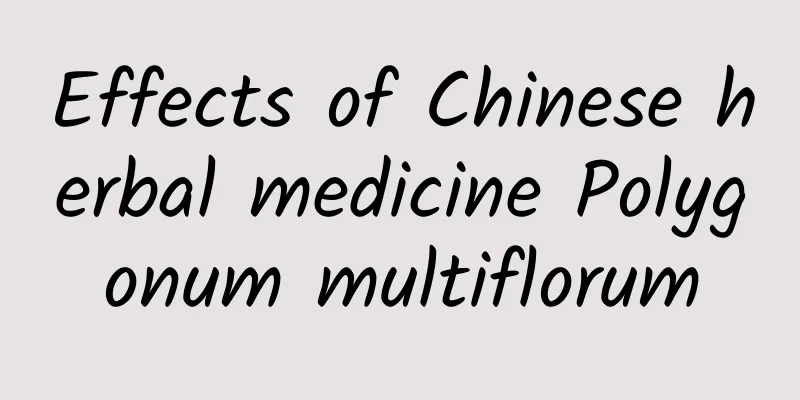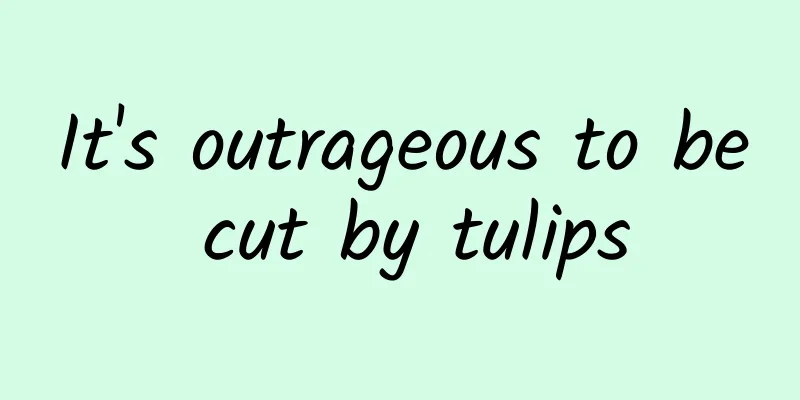Effects of Chinese herbal medicine Polygonum multiflorum

|
Most people don’t know much about Chinese medicine, because there are too many types of Chinese medicine. Chinese medicine has a long history in my country and is used to treat many diseases. People feel relieved when choosing Chinese medicine to treat diseases. Chinese medicine can cure diseases, but the course of treatment is very slow. However, Chinese medicine has no side effects on the body, so people have reasons to choose it. Polygonum multiflorum is also a kind of Chinese medicine, which can treat many diseases. So what are the effects of Chinese medicine Polygonum multiflorum? People are familiar with the legends and effects of the traditional Chinese medicine Polygonum multiflorum, but know very little about what Polygonum multiflorum is. In fact, the two are different medicinal parts of the same plant. Polygonum multiflorum is the vine stem of Polygonum multiflorum, which got its name because they will automatically mate with each other at night. The medicinal Polygonum multiflorum is the tuberous root of this plant. Traditional Chinese medicine believes that the herb is mild and non-toxic, sweet and slightly bitter, enters the heart and liver meridians, and has the effects of calming the mind and nourishing blood, dispelling wind and dredging the meridians. It is mainly used to treat yin deficiency and blood deficiency, insomnia, rheumatic arthralgia, skin itching and rash, etc. The decoction dosage of Polygonum multiflorum is generally 10 to 30 grams. It can also be decocted in water for external washing or mashed for external application. The main clinical applications are briefly introduced below. 1. Insomnia: Polygonum multiflorum has the effect of nourishing blood and calming the mind. It is used for insomnia caused by yin deficiency and blood deficiency. It is often used in combination with Albizzia julibrissin, Ziziphus jujuba seed, Platycladus cypress seed, Polygala tenuifolia and other medicines. ① Polygonum multiflorum, wheat and bean soup: 10 grams of Polygonum multiflorum, 45 grams of wheat, 30 grams of black beans, add water and boil to get the soup, drink twice a day. It has the effect of nourishing the heart and kidneys and calming the mind. It is used for neurasthenia, insomnia caused by disharmony between the heart and kidneys, and irritability. ② Black chicken and rattan stew: Wash 1 black chicken, blanch it in boiling water, then rinse it with cold water. Wash 30 grams of Polygonum multiflorum, wrap it with gauze, and put it into the chicken's stomach. Put the chicken in a soup pot, add appropriate amount of ginger slices, salt, rice wine and water, boil it over high heat first, then simmer until the chicken is cooked through, add appropriate amount of MSG and it is ready to eat. It can be used for diet therapy for patients with refractory insomnia. ③ Ningshen Mixture: 15g each of Polygonum multiflorum, Rehmannia glutinosa, Lilium bulb, 30g of floating wheat, 6g of roasted licorice root, and 7 red dates. Decoction with water, take twice a day, and take an additional dose before going to bed. It has the effect of nourishing blood and calming the mind, and can treat symptoms such as dizziness, fatigue, tinnitus, blurred vision, palpitations, nightmares, and difficulty falling asleep. ④ Anshen Decoction: 20g each of Polygonum multiflorum and Albizzia julibrissin bark, 15g each of Ziziphus jujuba seeds, Platycladus cypress seeds, and Poria cocos, and 10g of amber. Add or subtract ingredients according to symptoms, decocted in water and taken orally. Take 1 dose per day, divided into 3 times, 30 days as a course of treatment. It is effective for insomnia. ⑤ Polygonum multiflorum porridge: Soak 60 grams of Polygonum multiflorum in warm water for a while, add 500 ml of clean water and boil about 300 ml of the juice; then add 50 grams of polished rice, 2 jujubes, and an appropriate amount of sugar, and boil until the porridge is thick. Take it while hot, 1 hour before going to bed at night. One course of treatment is 10 days. Suitable for intractable insomnia, nightmares and rheumatic pain. The above knowledge is about the various effects and functions of the traditional Chinese medicine Polygonum multiflorum. There are many diseases that can be treated with this Polygonum multiflorum, but Polygonum multiflorum is mainly used to calm the nerves and soothe the mind. If you always suffer from insomnia when you sleep at night, or feel listless and in a bad mood, then you might as well try choosing Polygonum multiflorum to treat such phenomena. |
<<: How to soak black wolfberry and red dates in wine
>>: The efficacy of traditional Chinese medicine Sanbai Decoction
Recommend
The efficacy and function of Asafoetida
Asafoetida [picture] is rich in nutritional value...
What Chinese medicine can help soothe the throat?
Have you felt the cold winter? The dry climate in...
How long can Panax notoginseng powder be stored?
All medicinal materials have a shelf life, and Pa...
Turritopsis dohrnii: The Fairy Dancing Between Life and Death
All tangible and existing things begin their jour...
Harbin "Ice Sugar Factory" is open for business! How can 100,000 cubic meters of ice survive the hot summer?
If you ask which city is the hottest recently, Ha...
Is the milk you bought pure? These three numbers on the box reveal the secret
Review expert: Wang Guoyi, Postdoctoral Fellow in...
What are the effects of black wolfberry
Black wolfberry has the same benefits to the huma...
Recommendation! These 9 types of people should drink less coffee. Check if this is you.
Drinking a cup of coffee has become a waking ritu...
Mycoplasma pneumoniae infection may peak in November: Parents must know these key questions
The health of children concerns every parent. Thi...
Do you rely on "shivering" to keep warm in winter? 5 heater reviews to keep you warm in winter~
Winter in the north: witnessing the first snow vs...
The efficacy and function of cat's claw
I believe many people are familiar with the Chine...
The efficacy and function of chestnut
Although Western medicine and Western drugs are m...
What happens during ovulation?
In order to get pregnant as soon as possible afte...
The efficacy and function of bamboo flowers
Traditional Chinese medicine often has unexpected...









